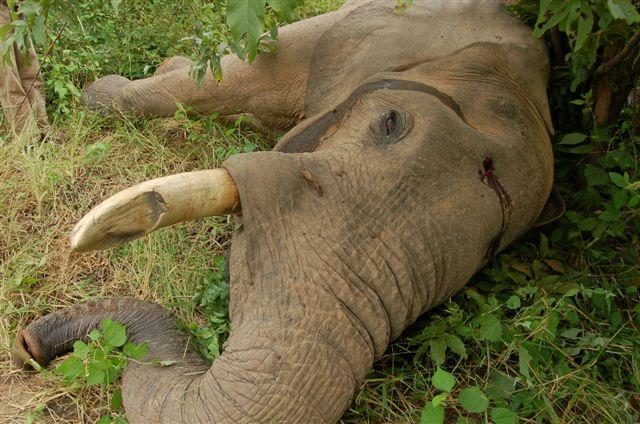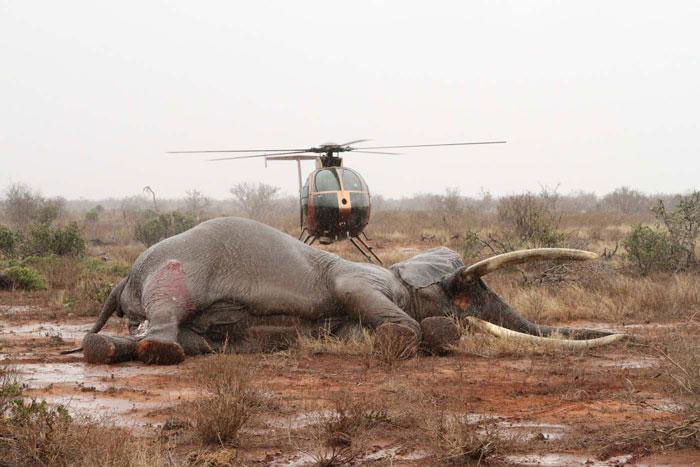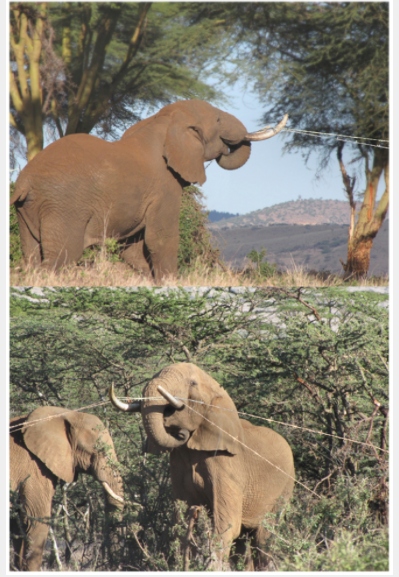About This Project
In the Ol Pejeta Conservancy of central Kenya, human-elephant encounters are causing conflict. Farmers are in a battle to stop crop-raiding by male elephants. Sanctioned or illegal killing is currently used to stop the elephant raiders. The aim of my project is to test non-lethal methods aimed at modifying the behavior of raiding elephants through conditional stimulus training. GPS-tracking data will provide Kenya Wildlife Services with evidence that non-lethal methods will work.
Ask the Scientists
Join The DiscussionWhat is the context of this research?
Human-elephant conflict in continental Africa centers primarily around destruction and loss of crops. In Kenya, crop-raiding elephants are killed both legally and illegally. The little known practice of retaliatory killing and lethal management of elephants that raid crops is, next to poaching, the second greatest cause of mortality and population decline. The method used to kill is often with poison-tipped spears, resulting in prolonged and agonizing death lasting days or weeks.
A year's worth of crops can be demolished in minutes by crop-raiding elephants, and despite their precarious survival status, conflict is on the rise due to increased agricultural development, reduced habitat availability, and fragmentation of key migration corridors.
What is the significance of this project?
This proposed research has the dual effect of turning "problem" individuals into targets for conservation and demonstrating that aversive training is effective for reducing destructive behavior. Crop fields surrounding and bordering protected areas are highly susceptible to crop-raiding due to their proximity to elephant pathways and high traffic corridors. The proposed site for research includes fields near the Ol Pejeta Conservancy (OPC) in central Kenya. Two of five target individuals selected for long-term monitoring under the aims of this research proposal are still in need of GPS-tracking collars for the purpose of collecting long-term movement data. This added data will help Kenya Wildlife Service to better assess the efficacy of the method I've developed.
What are the goals of the project?
We need to determine the pre-and post-experiment movements of additional targeted African elephants identified as habitual crop-raiders. We will train wild "problem" elephants by using conditional stimulus techniques surrounding the Ol Pejeta Conservatory in central Kenya.
We need to determine the fence-breaking activity and crop-related movements of a habitual raider before and after conditioning, compare the activity of these elephants to other habitual raiders tracked during the experiment, and evaluate the efficacy of the behavioral training as a tool to de-escalate human-elephant conflict, reduce crop-raiding events, and change attitudes of local farmers toward elephants.
Budget
The funds raised through this campaign will directly impact the survival of elephants earmarked for termination in the midst of human-elephant conflict. The conservation efforts of the Ol Pejeta Conservancy and the Kenya Wildlife Service will be aided through access to key data; the project will also provide results needed for the completion of my master's thesis work. Funding for the majority of the research (airfare, lodging, field equipment, etc...) is currently under review with a private zoological organization, but I will need help financing the tracking supplies for the two additional males that have been identified as "problem" habitual raiders. Any donation is greatly appreciated and any funds raised in excess of my goal will be applied directly toward tracking the second individual.
Meet the Team
Team Bio
I have been a practicing behavioral ecologist for over 15 years, developing protocols for resolving Human-Animal Conflict in cities across the US, from California to New York. As the lead consultant and founder of The Little Blue Society (a 501c3 non-profit), I've worked to help communities deal with "problem" coyotes, bears, geese, cougars, and feral pigs where their territories overlap with humans. I enjoy creating win-win solutions for people and animals, and my methods have been called "innovative and effective."
In the past few years, I've turned my attention toward pastoral farmers and the wildlife of Africa. Communities in these rural areas are victims of crop-raiding in agricultural land overlapping with the home ranges of large and sometimes dangerous megafauna. I've had the privilege and pleasure of working with farmers, conservation wardens, community leaders, and endangered species organizations in Kenya to try to form pathways to success for endangered animal populations and the humans whose lives are being adversely affected.
In an effort to better develop protocols and practices to inform and empower stakeholders in conservation, I've recently returned to higher education to obtain my Master's degree. I'm a non-traditional student and am excited to build on my experience as a behavioral ecologist and conservation expert, developing more tools and routes to mutually beneficial outcomes for wildlife and people.
Additional Information

![]()

Project Backers
- 9Backers
- 12%Funded
- $520Total Donations
- $57.78Average Donation

